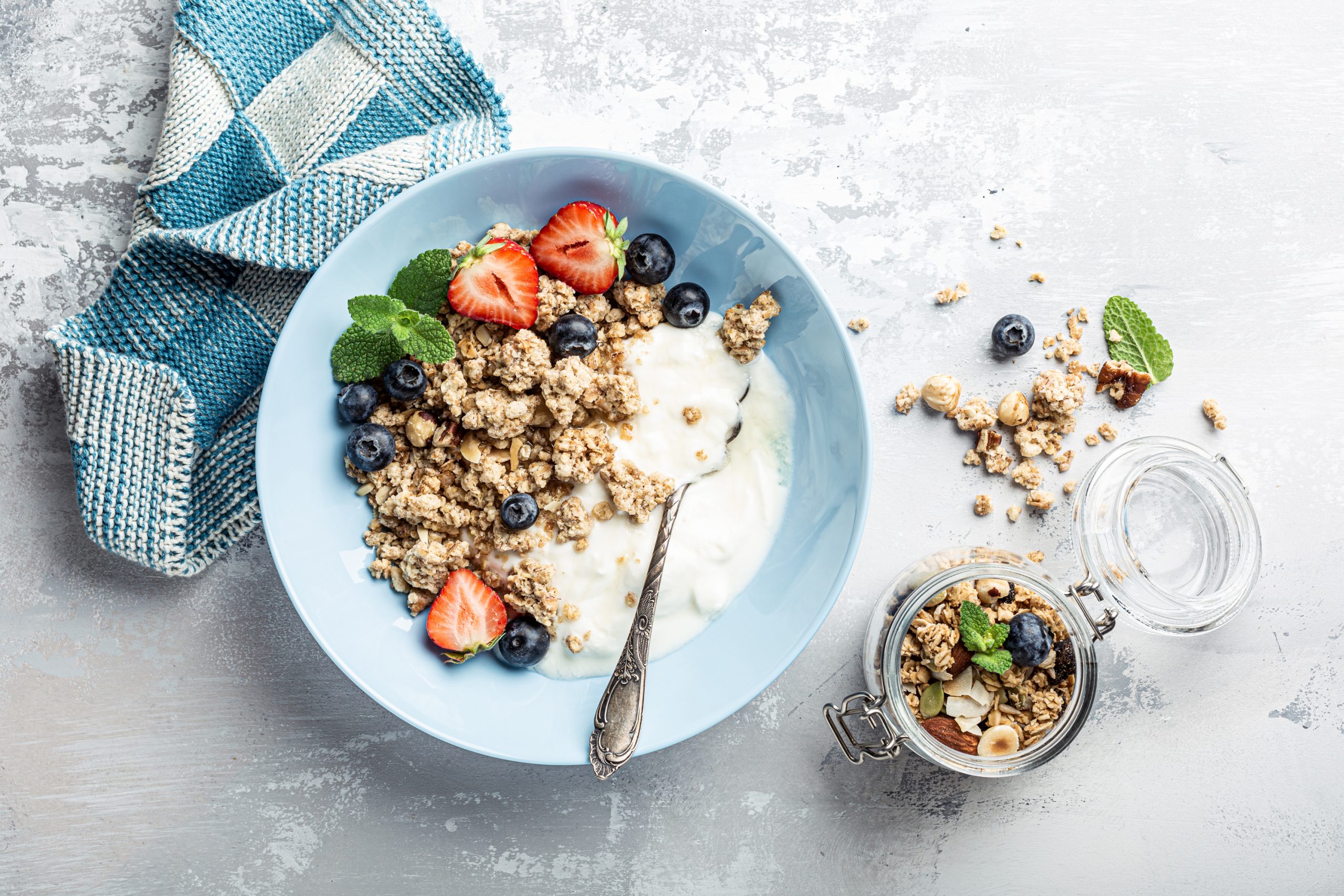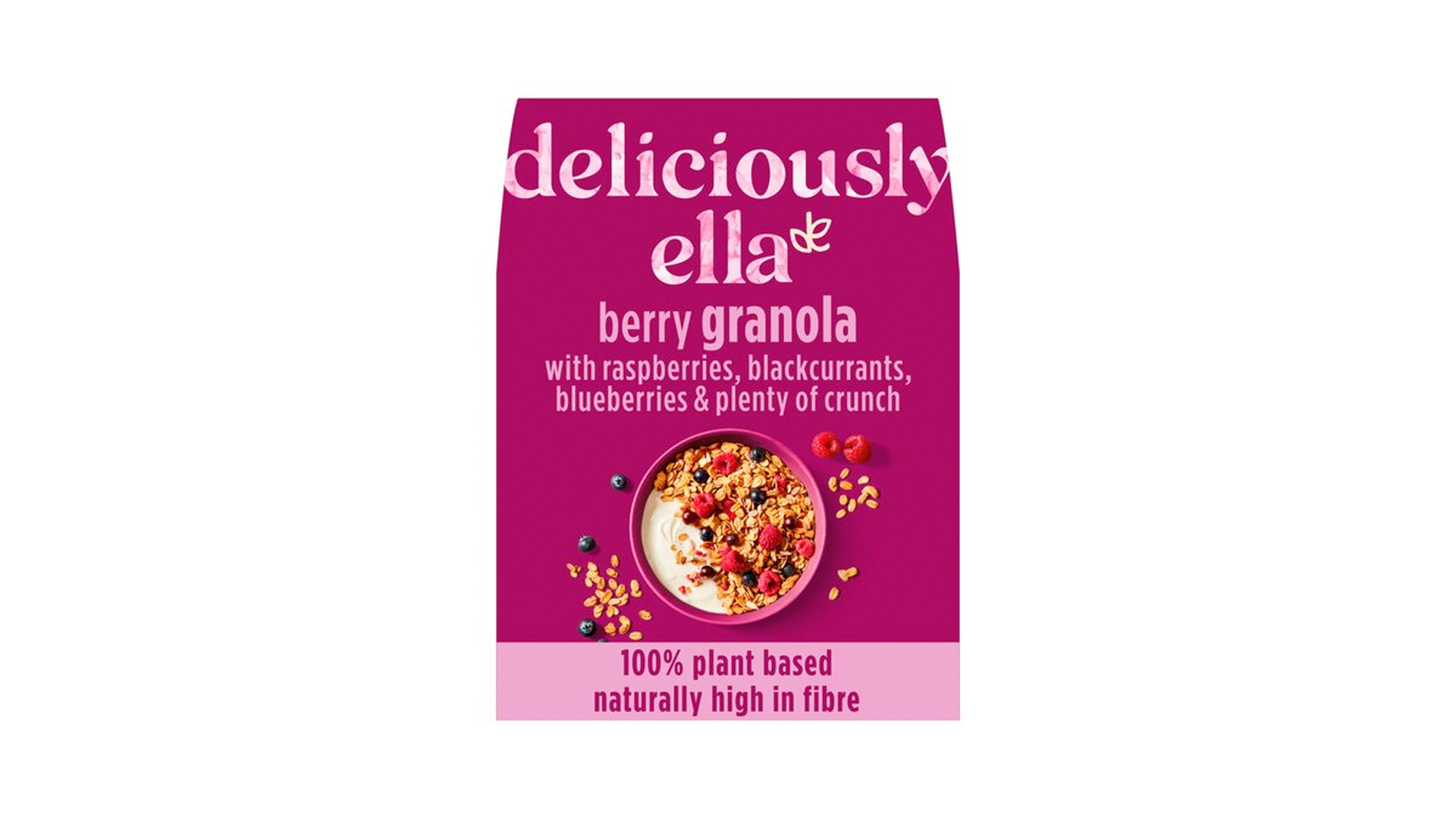Is granola healthy? Experts share the benefits - and healthiest brand
We ask two health experts to reveal all


Parenting advice, hot topics, best buys and family finance tips delivered straight to your inbox.
You are now subscribed
Your newsletter sign-up was successful
We’re used to teaming it with fruit and yoghurt for breakfast, but is granola healthy? We’ve asked the experts.
Many of us are partial to a hearty bowl of granola in the mornings, with it's ingredients of oats and dried fruits leading us to believe it’s a healthy cereal and good low-calorie breakfast option.
According to two experts, factors like portion size and the granola brand you buy can both impact how healthy granola is. We asked them to share their views on the pros and cons of granola (note: hidden sugars) and how weight-loss friendly it is - so you've got all the facts for when you next tuck into a bowl.
Is granola healthy?
In a nutshell - yes, granola is healthy. “Granola on its own provides important micronutrients like iron, vitamin D, and zinc, which help with providing good skin and hair,” says dietitian Jade Pitcher. “It also contains high amounts of vitamin B which is vital in the growth of red blood cells, meaning oxygen can be carried around the body more efficiently.”
Nutritionist Mina Khan agrees: “Granola itself is generally healthy, especially when homemade. Because of the oats, granola often contains a great amount of fibre which is really good for aiding digestion, so could be a winner for those with gut health problems such as IBS.”
Magnesium is another essential vitamin found in granola which helps aid relaxation and deep sleep. One study has also shown that Magnesium helps to prevent migraines, whilst additional Magnesium research has revealed its effectiveness against symptoms of depression.
Jade adds that granola recipes containing nuts and fruits also have added health benefits.“Nuts and dried fruit contain antioxidants such as vitamin E, which lowers inflammation and joint pains, as well as providing protection against cell damage that can over time lead to cancer.” she says.
Parenting advice, hot topics, best buys and family finance tips delivered straight to your inbox.
Granola is good for weight loss, so long as you’re eating a healthy variety that’s packed with fibre. As Mina explains: “Foods with high fibre contents such as granola can help keep you feeling fuller for longer, which is great for those who are trying to reduce snacking"
Dietitian Jade Pitcher agrees that the high amounts of protein and fibre in Granola is good at fighting off cravings. “Its slow releasing energy will ensure that a bowl suppresses hunger pangs until lunch,” she tells us.

Always check the ingredients
But like most foods, granola has its pros and cons. While there are many plainer variations of granola - which, typically consist of mostly oats along with some nuts, seeds and dried berries - some popular supermarket varieties often contain chocolate flakes, fats and syrups. It's these additional ingredients, that can up the sugar and fat content, making it an unhealthy choice if you have too much.
“It’s most commonly made up of rolled oats that have been bound together with oil and some form of sticky sweetener such as honey or syrup, before being baked to form crunchy, delicious clusters,” says nutritionist Mina.
Mina agrees that many shop-bought, branded varieties often have high amounts of sugar because they use “a variety of syrups and sugars” which up the overall sugar content. This is why it’s important to look at labels when purchasing your breakfast granola. Or you could always make your own crunchy oat granola, so you know exactly what is in it.
How much granola should you really eat?
The general consensus is that you should eat between 45 to 50g of granola a day. This is often the recommended portion size that is stated on our granola cereal packaging.
“Suggested portion sizes are often 45g which is only around 3 tablespoons full, so I’d definitely recommend adding some natural greek yoghurt and fruit to create a balanced serving that will help keep you full without overeating,” suggests Mina.
Jade also recommends that your breakfast bowl serving does not exceed 15g of sugar, as this will equate to half of an adult's daily sugar allowance.
Which brand of granola is healthiest?
We've done the research and found that the healthiest brand of granola is Deliciously Ella Berry Granola. This plant-based granola boasts the lowest fat and sugar content amongst it's competitors. With just 4.3g of fat and 5g of sugar per 45g serving.

Sugar and fat are the two things to check when selecting your healthy granola, according to our experts. So bear their advice in mind on your next food shop.
"The first thing I’d always check when shopping for Granola is sugar contents," Mina tells us. "Saturated fat is also another really important marker to look out for when it comes to granola. This can often be quite high in options that contain chocolate and oil."
Jade Pitcher says that granola-fans should also be sceptical about brands that claim to be low fat or low sugar: "Like many healthy food options, brands can jump on the ‘healthy eating’ bandwagon and emblazon packaging with buzzwords slogans such as high in fibre," she says. "Read the labels, often (cheaper) brands that exclude fancy packaging are lower in calories, and sugar. Often, if a product claims to be low in fat, it often means that the product is high in sugar."

Mina Khan is a nutritionist, and qualified pharmacist. She spent 25 years working as a pharmacist before moving into the health food and nutraceuticals industry. Having been brought up with Ayurvedic Medicine, she believes passionately in the use of natural ingredients to help prevent and manage a range of health conditions. She gained her Bachelor of Science (BSc) Pharmacy at the University of Sutherland - and went on to found the nutraceuticals brand, Formulate Health.

Emily Stedman is the former Features Editor for GoodTo covering all things TV, entertainment, royal, lifestyle, health and wellbeing. Boasting an encyclopaedic knowledge on all things TV, celebrity and royals, career highlights include working at HELLO! Magazine and as a royal researcher to Diana biographer Andrew Morton on his book Meghan: A Hollywood Princess. In her spare time, Emily can be found eating her way around London, swimming at her local Lido or curled up on the sofa binging the next best Netflix show.